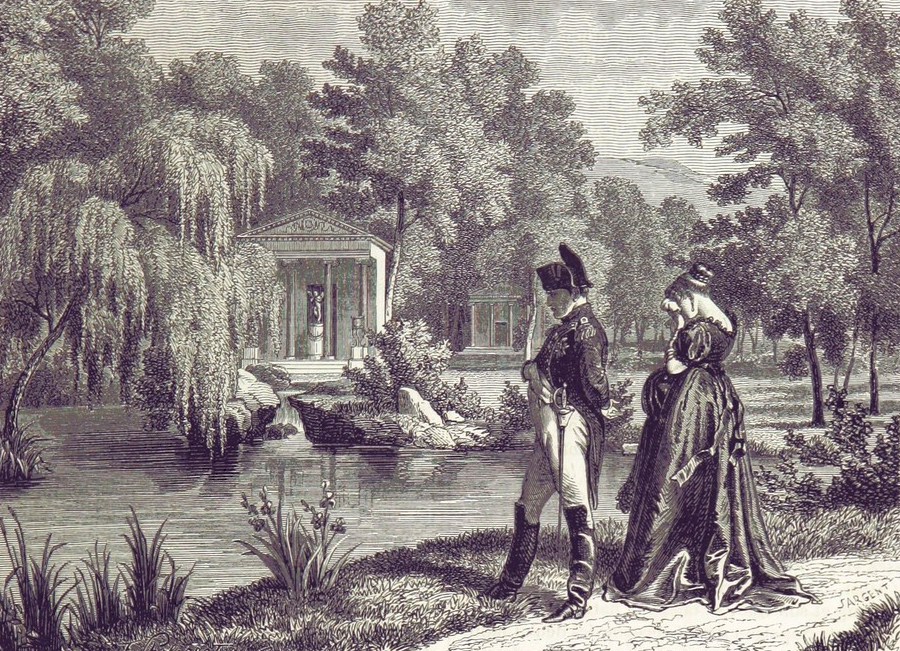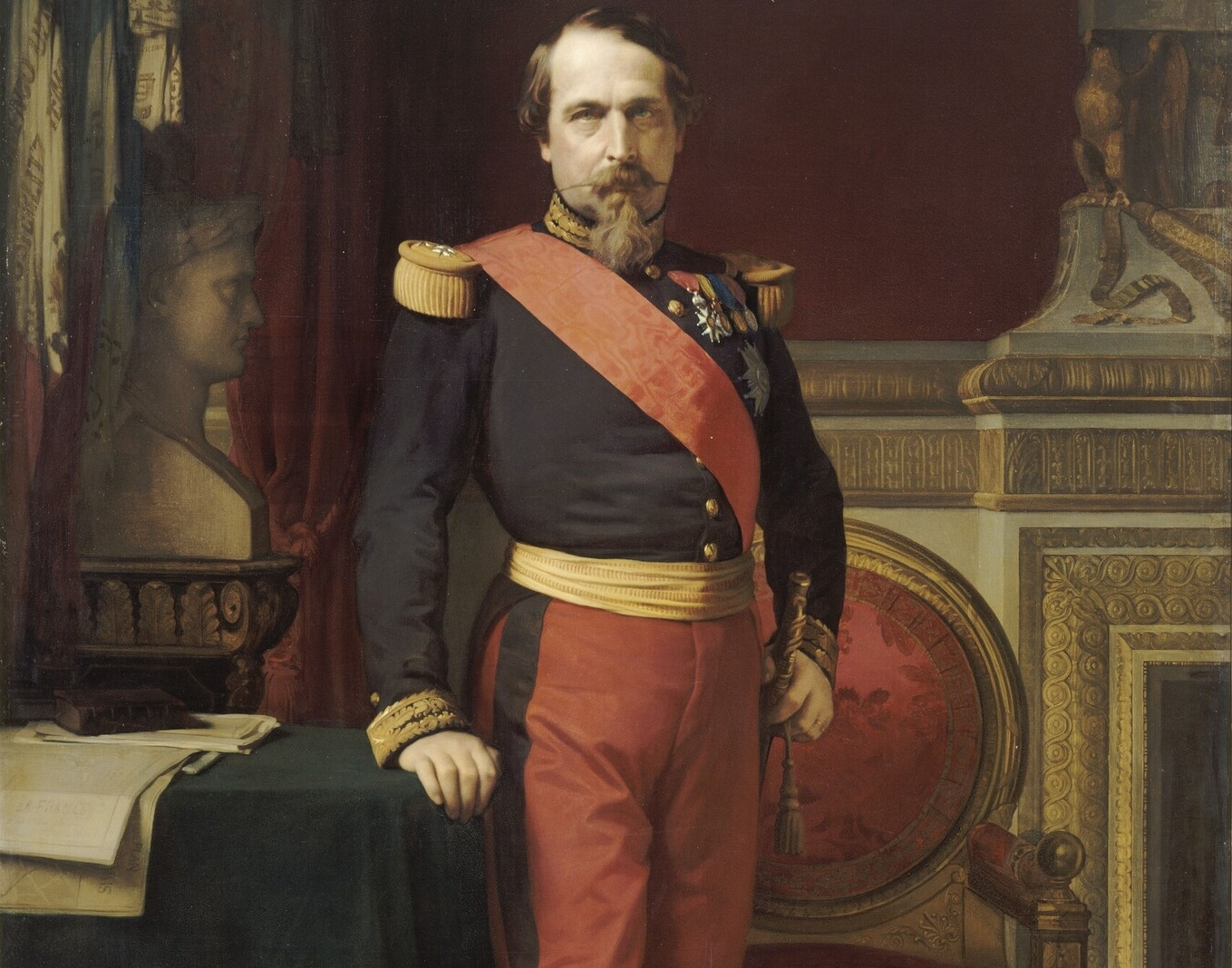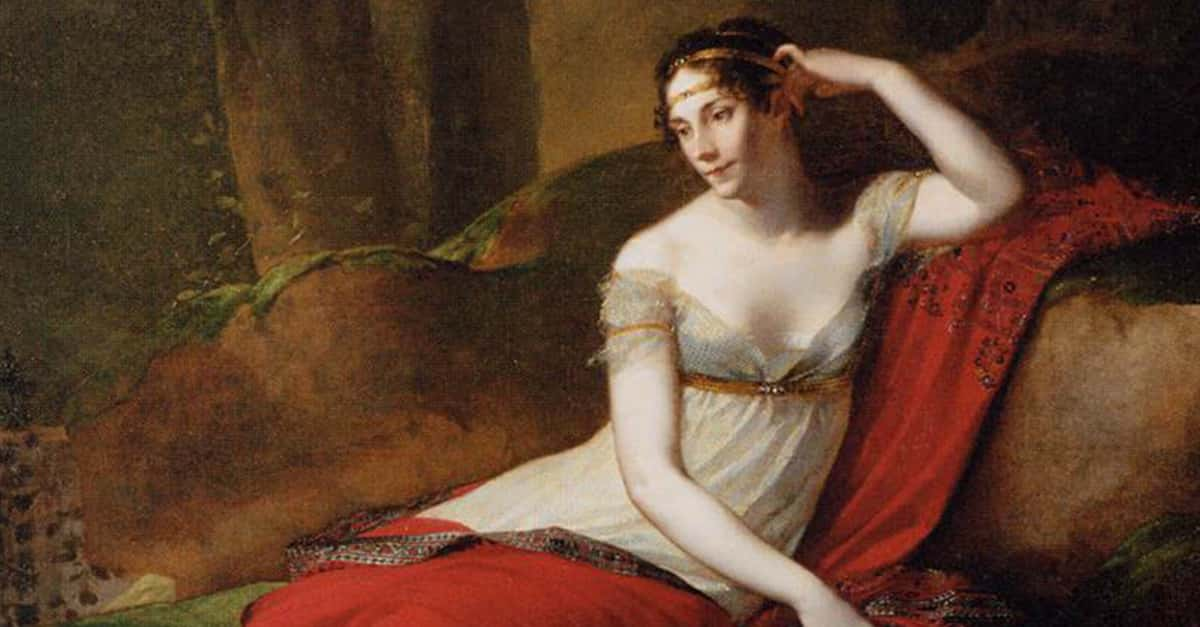The Exiled Queen
Hortense de Beauharnais was the Queen of Holland by way of marriage but her heart was always in her home country of France. Too bad she lived most of her life in exile—and alone.

1. She Never Got What She Wanted
Hortense de Beauharnais just wanted to marry the man of her dreams and compose sweet music. Unfortunately, however, her mother arranged for her to have a loveless marriage to Napoleon Bonaparte’s brother. Tragically, her ties to the Bonaparte clan forced her to give up her beloved home country and abandon all hope of finding true love—and things only got worse from there.

2. She Was The Reason Her Parents Broke Up
Hortense was born prematurely on April 10, 1783 to Alexandre François Marie and Joséphine Tascher de la Pagerie. While most children erroneously blame themselves if their parents’ marriage collapses, in de Beauharnais’ case, it was actually true. Her parents used her premature birth as a pretense to separate from each other.
She would become all too familiar with unhappy marriages.
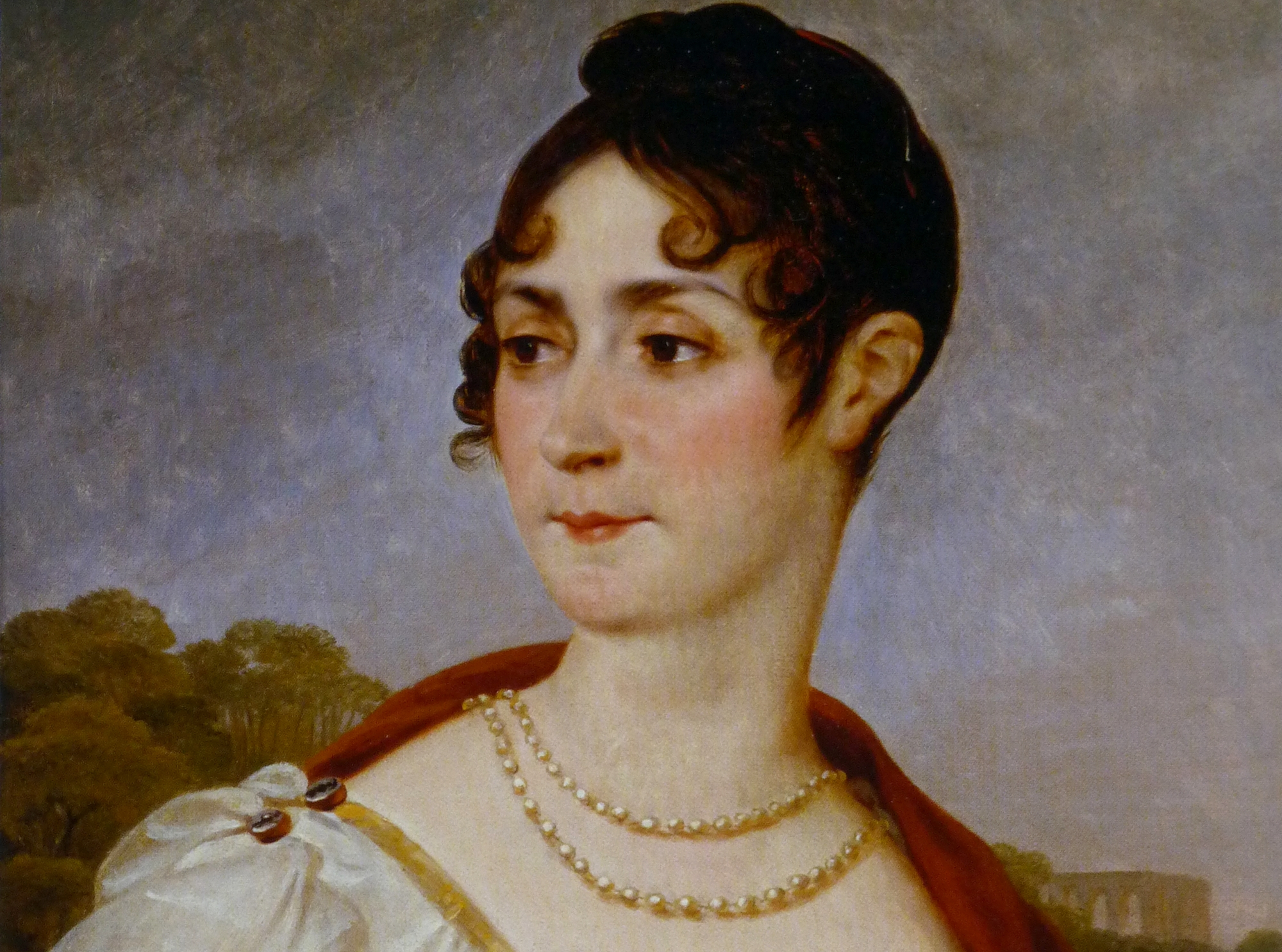 Antoine-Jean Gros, Wikimedia Commons
Antoine-Jean Gros, Wikimedia Commons
3. Her Father Disowned Her
In yet another crushing setback to Hortense's early childhood, Alexandre completely denied his paternity over her. Only after a court-ordered separation did he finally acknowledge her as his flesh and blood. Not that it mattered for long. Both of her parents soon found themselves to be prisoners during the Reign of Terror.
 Unknown Author, Wikimedia Commons
Unknown Author, Wikimedia Commons
4. She Fled To The Caribbean
To escape further social scandal, Hortense's mother, Joséphine, took her away to the exotic Antilles. Eventually, her parents reconciled and they returned to their luxurious life in France. But her happiness soon came to a bloody and dramatic end at the Place de la Concorde. It was an event that the young de Beauharnais would never forget.
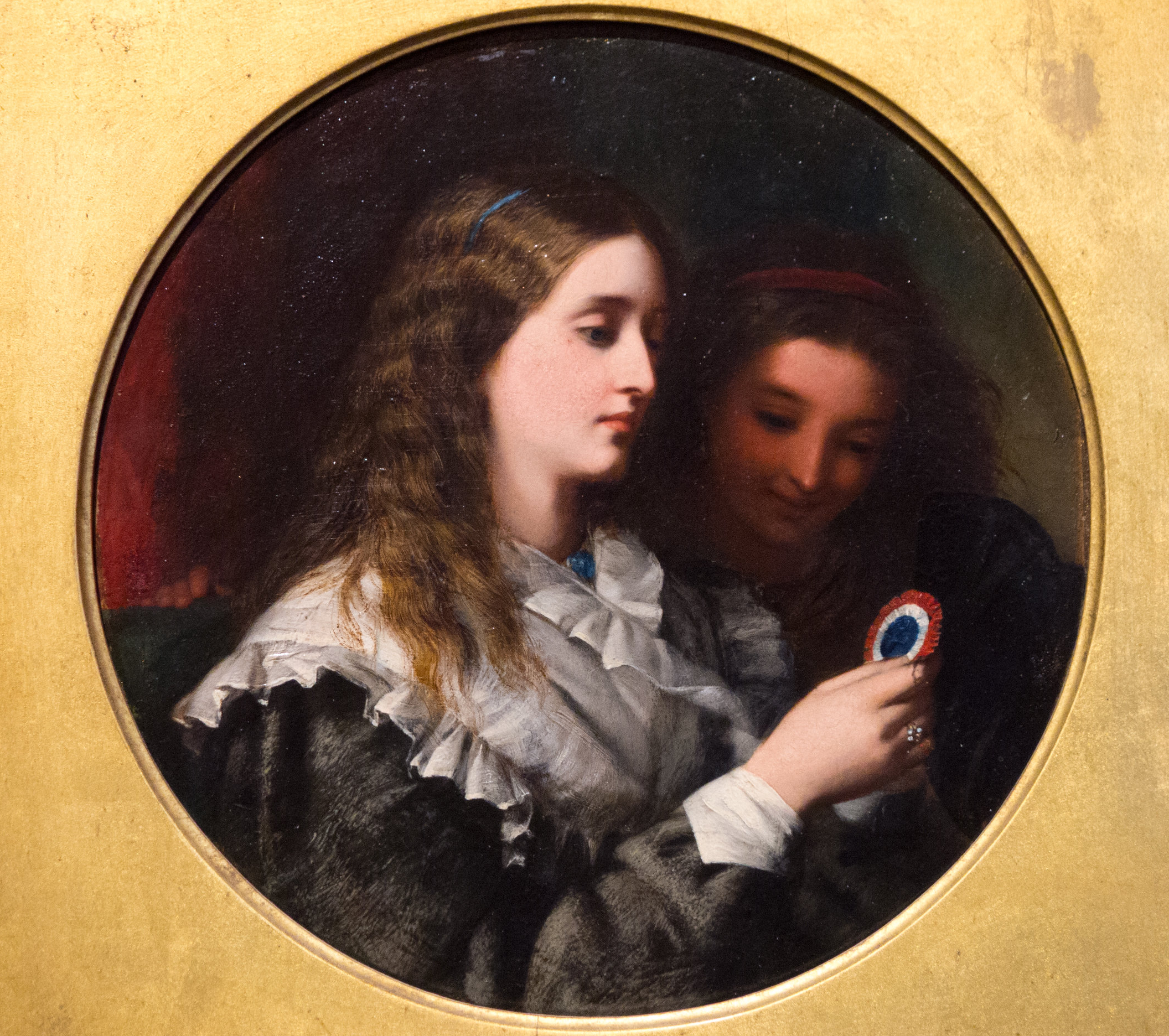 Milky, CC BY-SA 4.0, Wikimedia Commons
Milky, CC BY-SA 4.0, Wikimedia Commons
5. She Watched Her Father Lose His Head
Hortense nearly became an orphan. In 1794, revolutionary forces detained both of her parents on suspicion of being aristocrats (spoiler alert: they were). Sadly, Hortense and her brother witnessed their father’s harrowing last moment. They watched helplessly as the revolutionaries removed his head with a guillotine. The event scarred her for life.
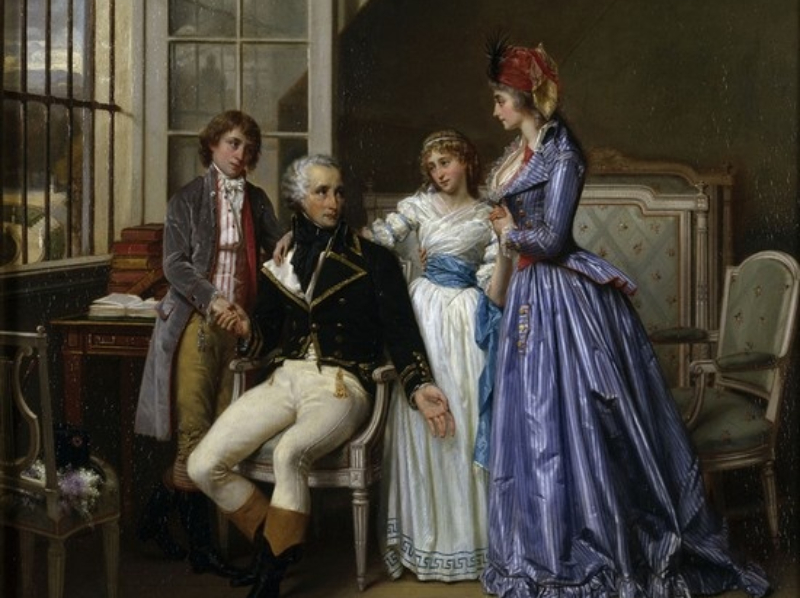 Jean Louis Victor Viger de Vigneau, Wikimedia Commons
Jean Louis Victor Viger de Vigneau, Wikimedia Commons
6. Her Mother Didn’t Want To Raise Her
Thankfully, the revolution ended just in time for Hortense's mother, Joséphine, to regain her freedom. For the time being, she was not an orphan. Unfortunately for Hortense, however, Joséphine decided that she didn’t have the time to raise children. As such, she shipped the young girl off to boarding school.
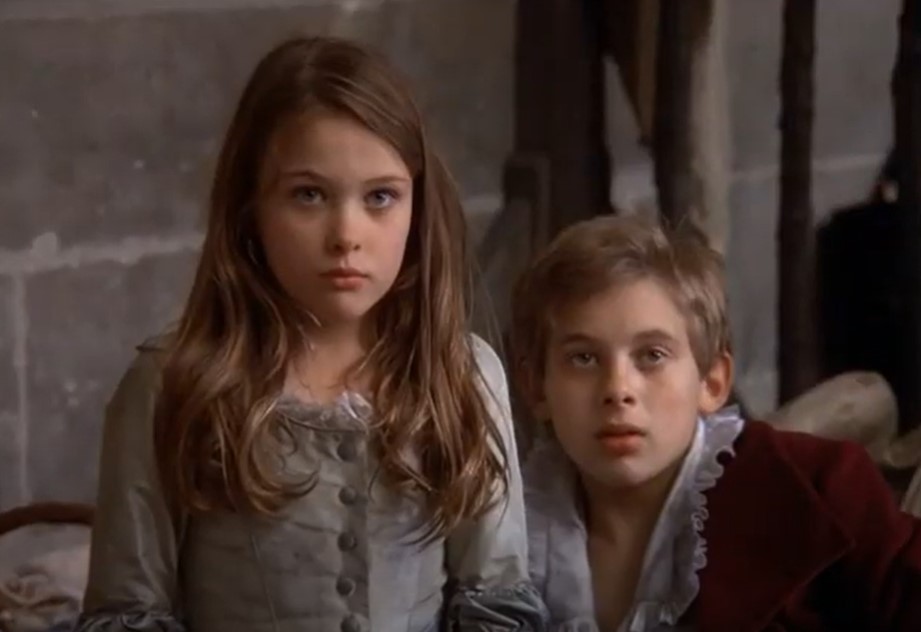 Warner Bros., Napoleon and Josephine: A Love Story (1987)
Warner Bros., Napoleon and Josephine: A Love Story (1987)
7. She Found Some Peace
Once the revolution ended, Hortense de Beauharnais returned to her aristocrat lifestyle and finally found some peace in her childhood. She attended the Institution Nationale de Saint-Germain, a renowned girls' school headed by none other than Madame Campan—a former first lady-in-waiting to the ill-fated Marie-Antoinette. It seemed her troubles had come to an end.
 Unknown Author, Wikimedia Commons
Unknown Author, Wikimedia Commons
8. She Was Enchanting
Within the nurturing embrace of the girls’ school, Hortense discovered an atmosphere teeming with trust and encouragement. Madame Campan herself couldn't help but sing her praises, declaring, "She [de Beauharnais] is the most enchanting 12-year-old girl I have ever had the privilege to instruct”. She was something of a teacher’s pet. Joseph Boze, Wikimedia Commons
Joseph Boze, Wikimedia Commons
9. She Was Starved Of Affection
Despite finding some measure of peace and acceptance at the girls’ school, Hortense's turbulent early years had left her starved of affection—and it showed. Madame Capman noted that de Beauharnais “would go to the one who loved her most”. Sadly, the one who loved her most would never be her mother, husband, or even her secret lover.
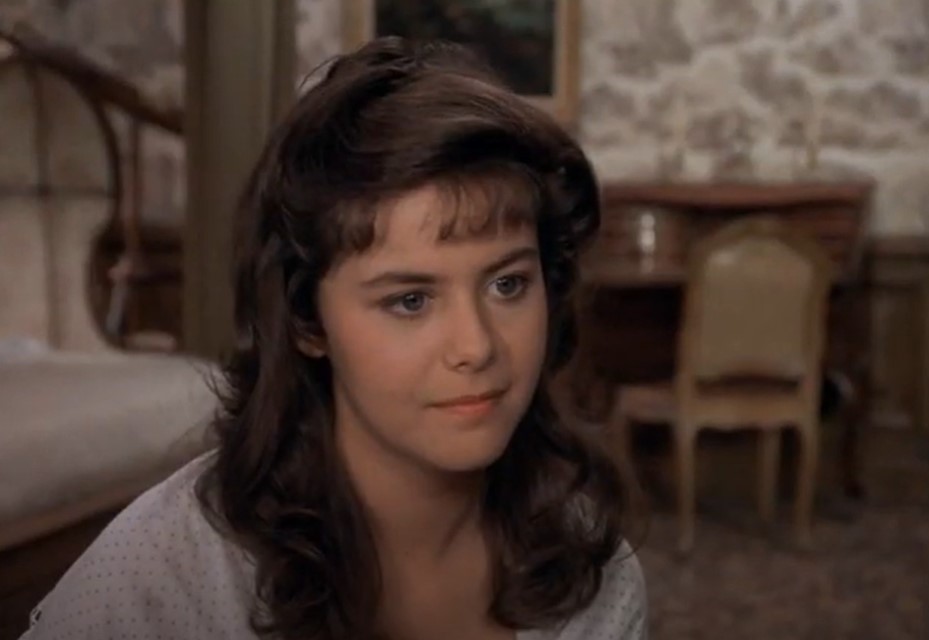 Warner Bros., Napoleon and Josephine: A Love Story (1987)
Warner Bros., Napoleon and Josephine: A Love Story (1987)
10. Her Life Changed In A Day
The day of March 9, 1796, changed Hortense's life forever. Her mother, Joséphine, married the rising star, Napoleon Bonaparte, thrusting her into the intricate and perilous realm of political ambition. Initially, both Hortense and her brother, Eugène, regarded the short general with caution. But, much like the French people, he soon won them over.
In fact, she would come to rely on him for everything.
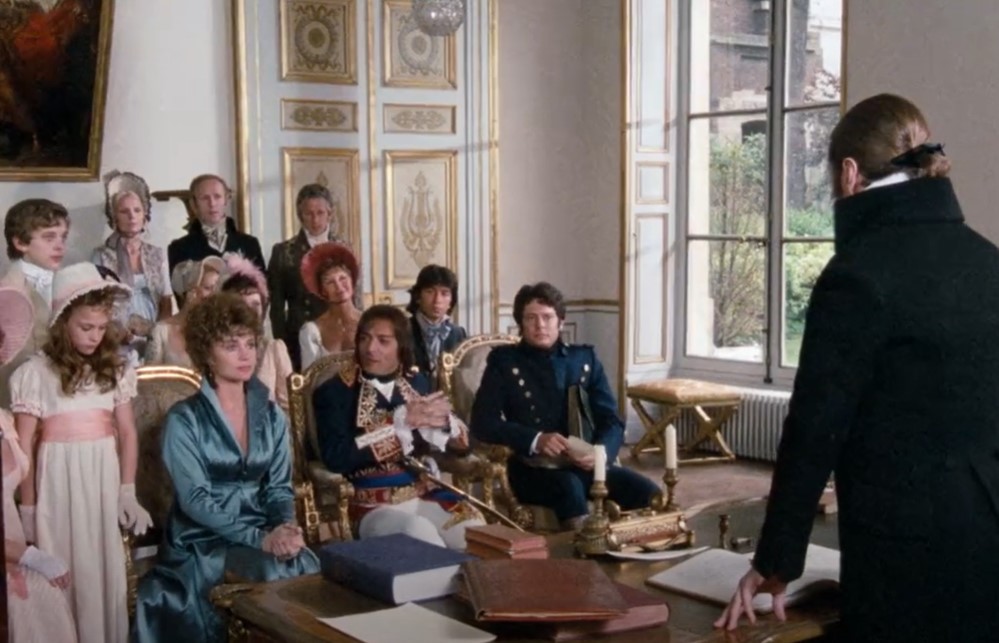 Warner Bros., Napoleon and Josephine: A Love Story (1987)
Warner Bros., Napoleon and Josephine: A Love Story (1987)
11. She Got The Father She Never Had
Hortense had every reason to be skeptical of her new stepfather. Gradually, however, she developed a profound admiration for Napoleon as he showered her with the affection her own father (or mother, for that matter) never had. Writing in her memoirs, she even said that he showed her “all the affection of a father”.
Their relationship may have crossed a line.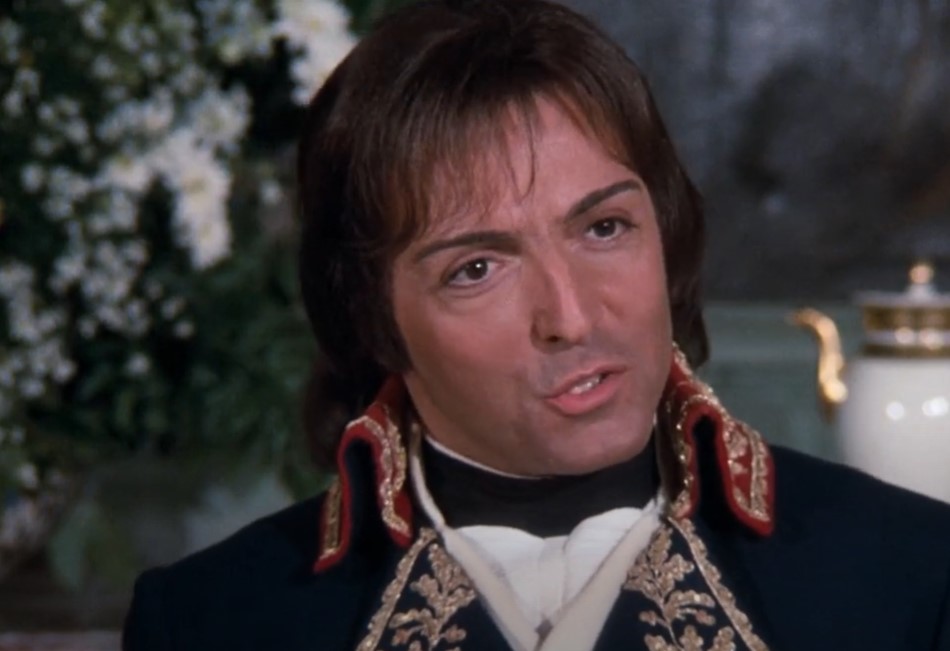 Warner Bros., Napoleon and Josephine: A Love Story (1987)
Warner Bros., Napoleon and Josephine: A Love Story (1987)
12. She Was Beautiful
At court, with her “long, pale golden-blonde hair and blue eyes," Hortense de Beauharnais had no trouble finding a long line of potential suitors. Some sources say that she flirted with Charles de Gontaut but gave her youthful heart to a man named “Duroc”. Alas, after a sultry winter together between 1800 and 1801, their fling ended. Her heart was not her own to command.
 Robert Lefèvre, Wikimedia Commons
Robert Lefèvre, Wikimedia Commons
13. Her Mother Controlled Her Life
The young and demure Hortense had no way of knowing that her fate was irrevocably entangled in the web of politics. While her stepfather, Napoleon, might have sanctioned a marriage to a man of her choosing, her mother certainly would not. Joséphine, without an heir of her own, would use her daughter to secure her ties to the Bonaparte lineage.
Their bloodlines definitely intermingled. Maybe more than they should have.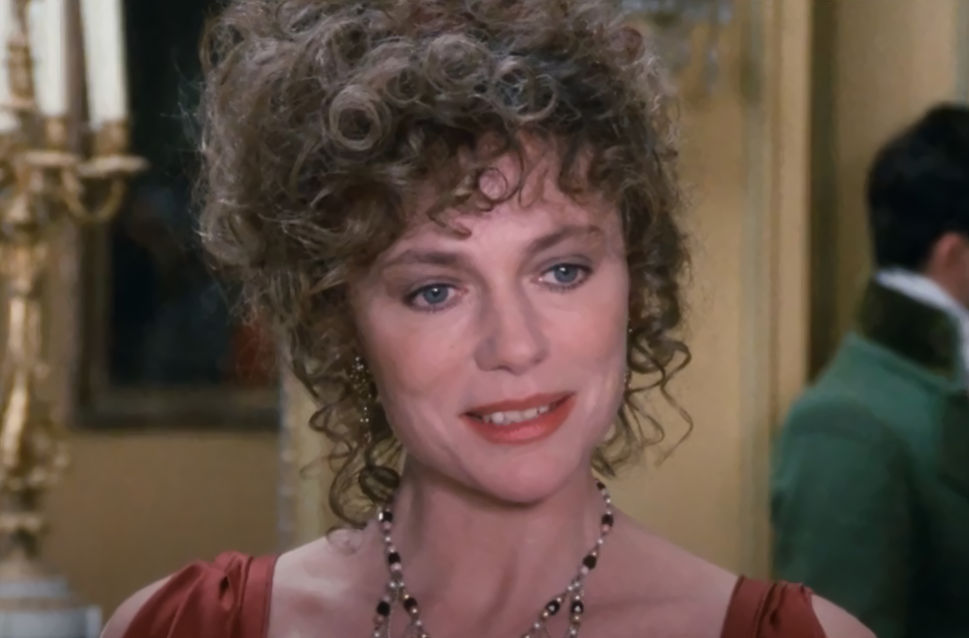 Warner Bros., Napoleon and Josephine: A Love Story (1987)
Warner Bros., Napoleon and Josephine: A Love Story (1987)
14. She Was Her Mother’s Sister
Hortense was no match for her strong-willed and politically ambitious mother. In the end, she fell to Joséphine’s persuasive prowess and had to marry the man her mother had selected for her. In what must have been a stomach-churning twist for de Beauharnais, the marriage arrangement would make her her mother’s sister.
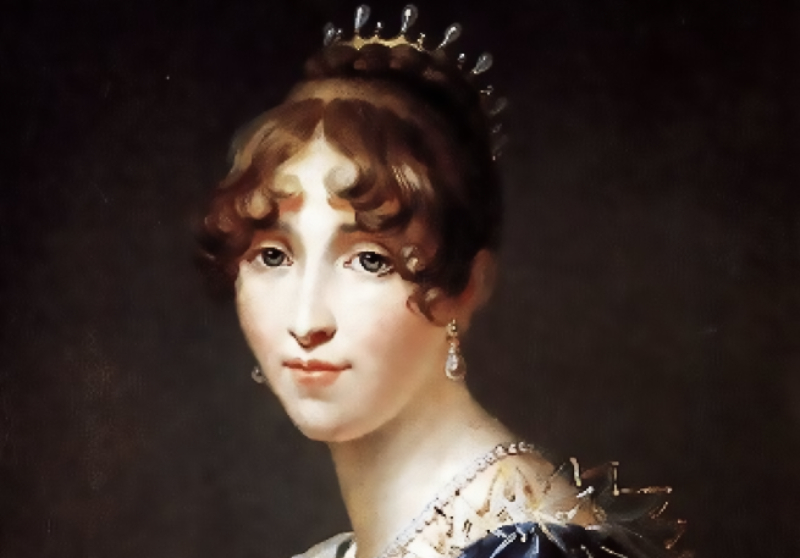 François Gérard, Wikimedia Commons
François Gérard, Wikimedia Commons
15. She Married A Little Napoleon
Thanks to her mother’s Machiavellian machinations, Hortense had to marry a man she loathed. In January of 1802, she married Louis Bonaparte, the younger brother of her stepfather, Napoleon Bonaparte. Not only did the marriage end her flirtations with men of her choosing, it also ended her love affair with the city of Paris.
 Charles Howard Hodges, Wikimedia Commons
Charles Howard Hodges, Wikimedia Commons
16. She Was Queen Of Holland
In an effort to shore up his ever-expanding empire, Napoleon made his younger brother King of Holland. Hortense hoped that she might serve as “a Queen of Holland in Paris," the appointment meant that she had to give up her comfortable life at court. Sadly, her marriage to the new King of Holland offered nothing but cold comfort.
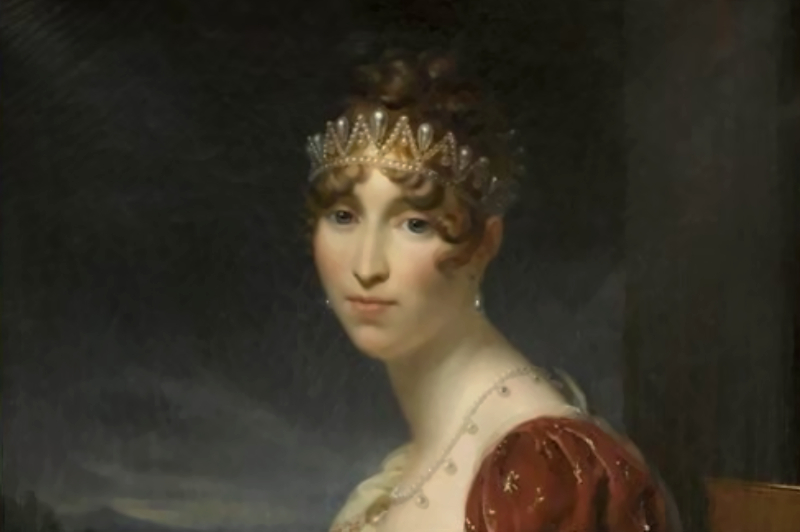 François Gérard, Wikimedia Commons
François Gérard, Wikimedia Commons
17. She Was A Woman Of The People
Once she arrived in Holland, Hortense de Beauharnais found herself pleasantly surprised. The Dutch public warmly embraced her arrival and showered her with affection. To the best of her abilities, she adapted to life in the Netherlands, growing genuinely fond of the country. She engaged in official celebrations and ceremonies, frequented marketplaces, and spent lavishly.
Her popularity with the people only enraged her husband.
 Jean-Baptiste Regnault, Wikimedia Commons
Jean-Baptiste Regnault, Wikimedia Commons
18. She Had A Loveless Marriage
For his part, Louis Bonaparte was an enigmatic figure. Plagued by seizures and possibly consumed with ruinous jealousy for his wife and her popularity, Louis did not provide Hortense with the love she craved so dearly. Try as she might, Hortense simply couldn’t bring herself to love him either. No matter how hard she tried.
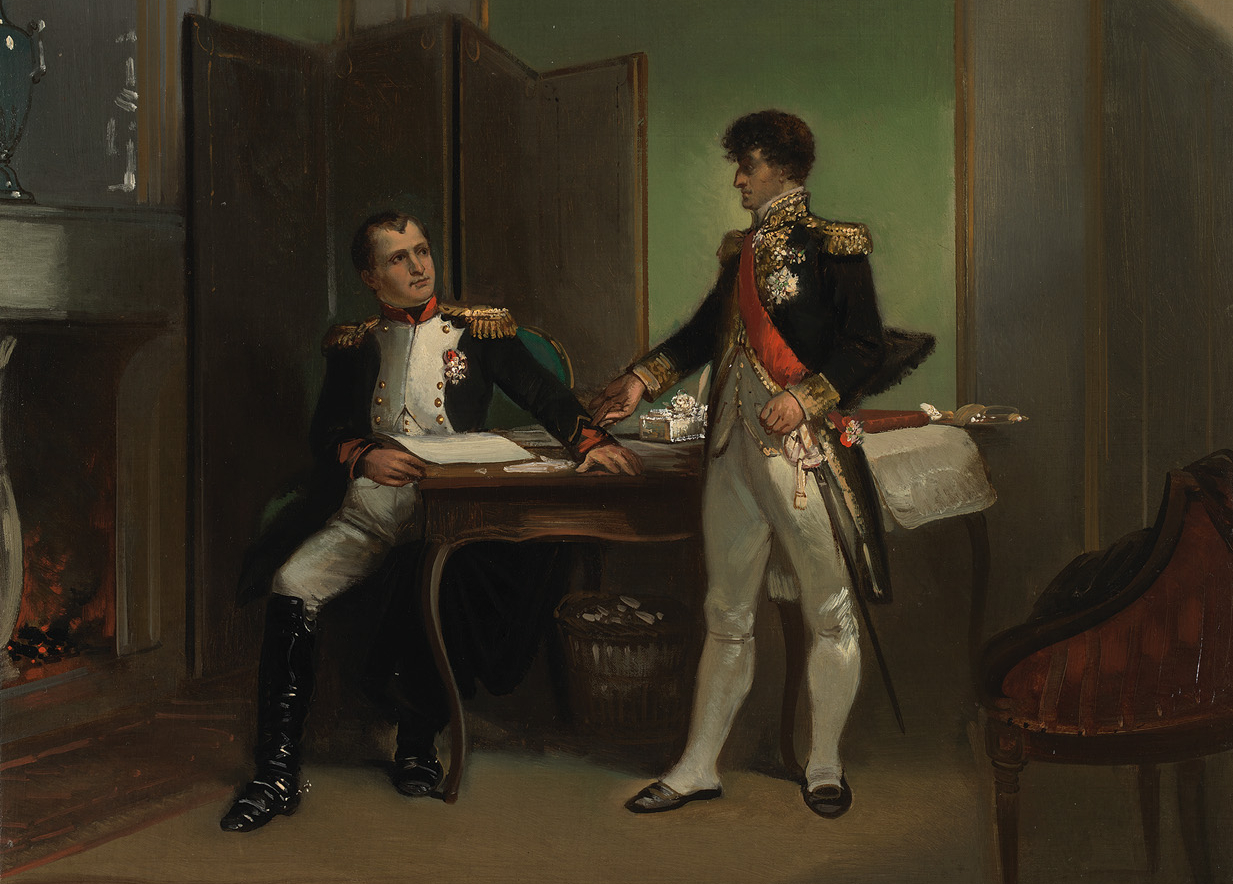 Herman Frederik Carel ten Kate, Wikimedia Commons
Herman Frederik Carel ten Kate, Wikimedia Commons
19. Her Marriage Kept The Empire Safe
Everyone could see that the marriage between Hortense and Louis hung by a thread. And if their marriage failed, then it could spell disaster for Napoleon and his ever-growing ambitions of a French Empire. In a desperate attempt to get the two to reconcile, Napoleon intervened in their marriage the same way he intervened in battle.
 Warner Bros., Napoleon and Josephine: A Love Story (1987)
Warner Bros., Napoleon and Josephine: A Love Story (1987)
20. She Was Irritated With Her Husband
Napoleon had tried hard to raise his brother to be a strong character like he was. In spite of his lesser qualities, Louis was also intelligent and sensitive—he just never showed that to his wife. Instead, Hortense quickly grew tired and irritated with his timidity. He might have reminded her too much of her own headless father.
 François Gérard, Wikimedia Commons
François Gérard, Wikimedia Commons
21. She Was An Excellent Wife
Napoleon attempted desperately to save Hortense's marriage to his younger brother. In a famous missive dated May 2, 1807, he tried in vain to extol the virtues of both parties: "You have an excellent wife, and you make her unhappy," he admonished Louis. "He may have some unusual ideas, but Louis is a just man," he reminded Hortense.
But their marriage was far beyond repair.
 Antoine Duclaux, Wikimedia Commons
Antoine Duclaux, Wikimedia Commons
22. She Did Her Duty
Despite the total lack of love between them, Hortense still managed to fulfill her wifely duties well enough to avoid divorce. She gave birth to three of Louis’ children, all of them sons and presumptive heirs to their childless uncle, the Emperor Napoleon Bonaparte. It is, however, possible that Napoleon was not as childless as he seemed.
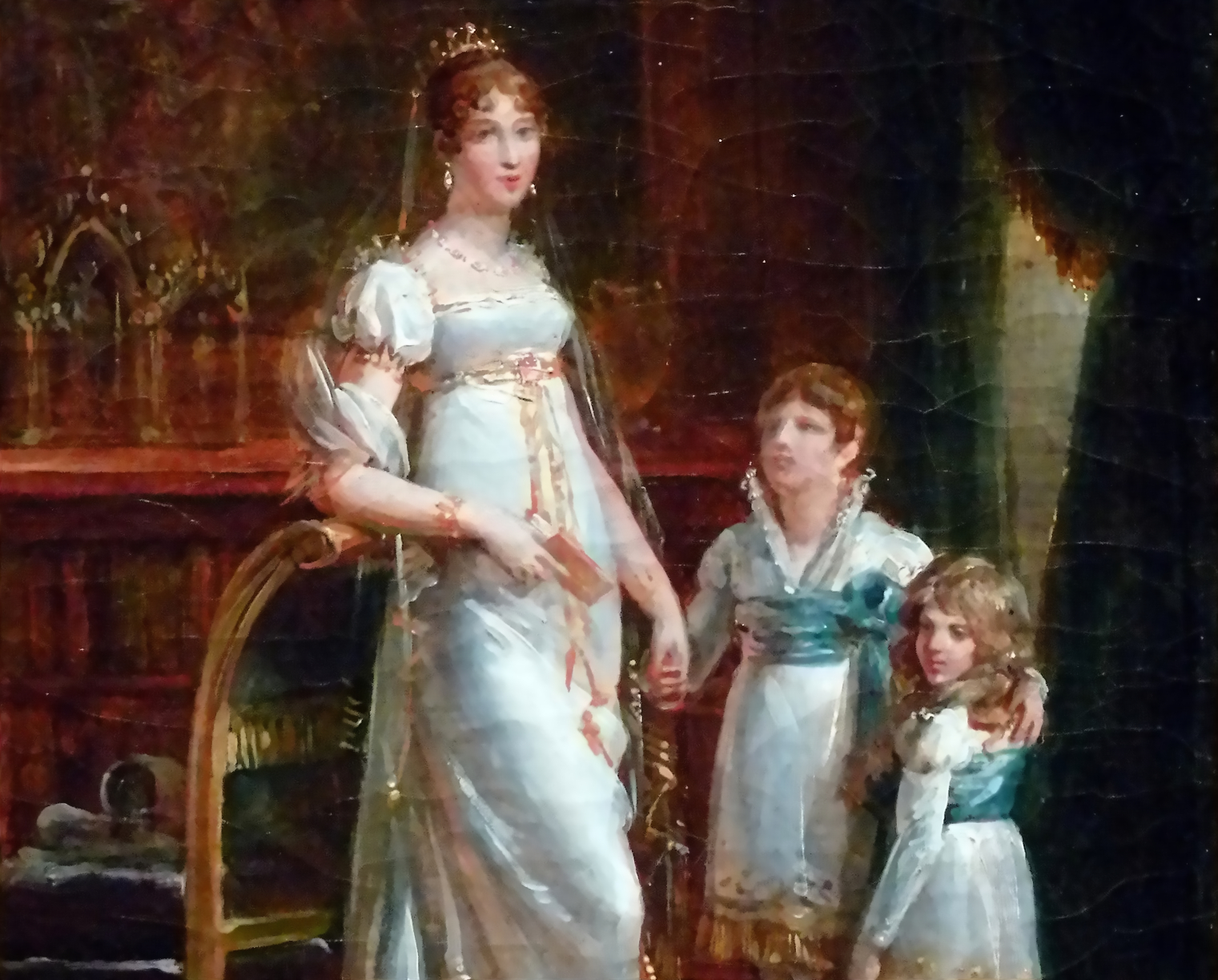 Marie-Eléonore Godefroid, Wikimedia Commons
Marie-Eléonore Godefroid, Wikimedia Commons
23. She Loved Her Stepfather
It’s no secret that Hortense de Beauharnais loathed her husband—but she did respect her stepfather/brother-in-law. Pretty soon, sordid rumors began to swirl around Europe. Everyone couldn’t help but notice that the Emperor Napoleon lavished affection and attention on Hortense's eldest son, Napoléon Louis Charles Bonaparte.
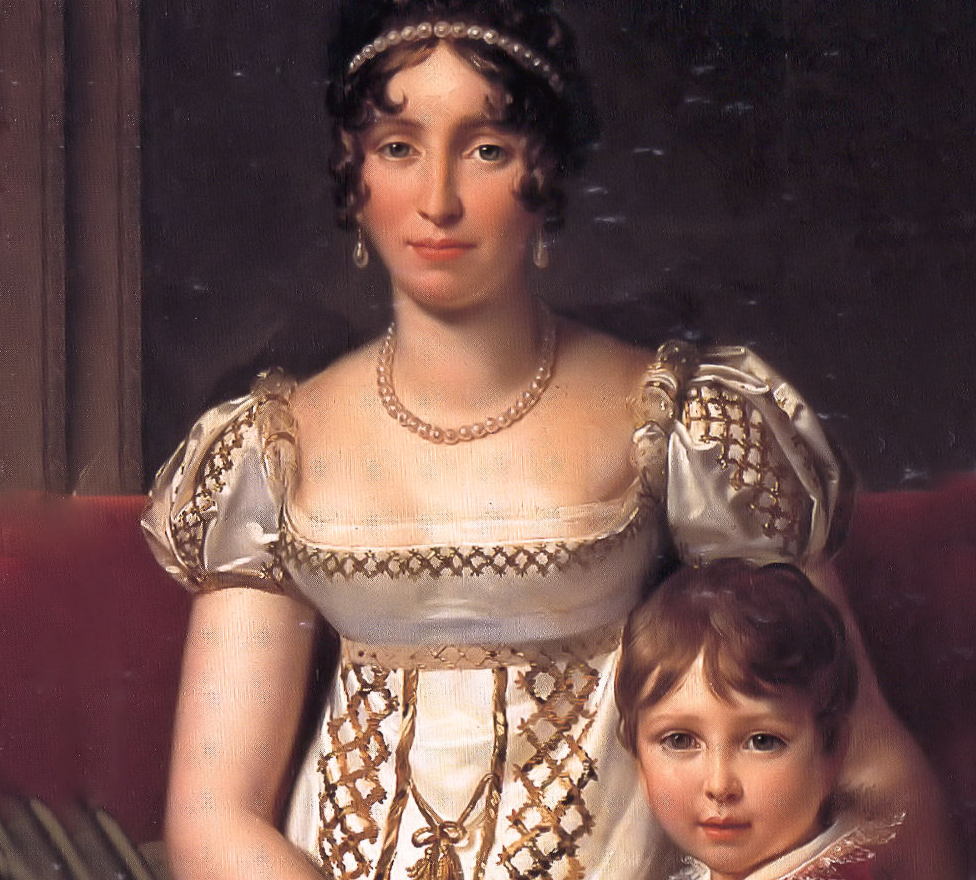 François Gérard, Wikimedia Commons
François Gérard, Wikimedia Commons
24. She May Have Had An Affair With Napoleon
The little Napoléon Louis Charles Bonaparte was definitely the apple of Hortense's eye. She doted on the boy adoringly—and so did his alleged uncle. Courtiers across Europe began to speculate that Hortense's eldest son was, in fact, the love child of a highly secret affair between herself and her stepfather/brother-in-law.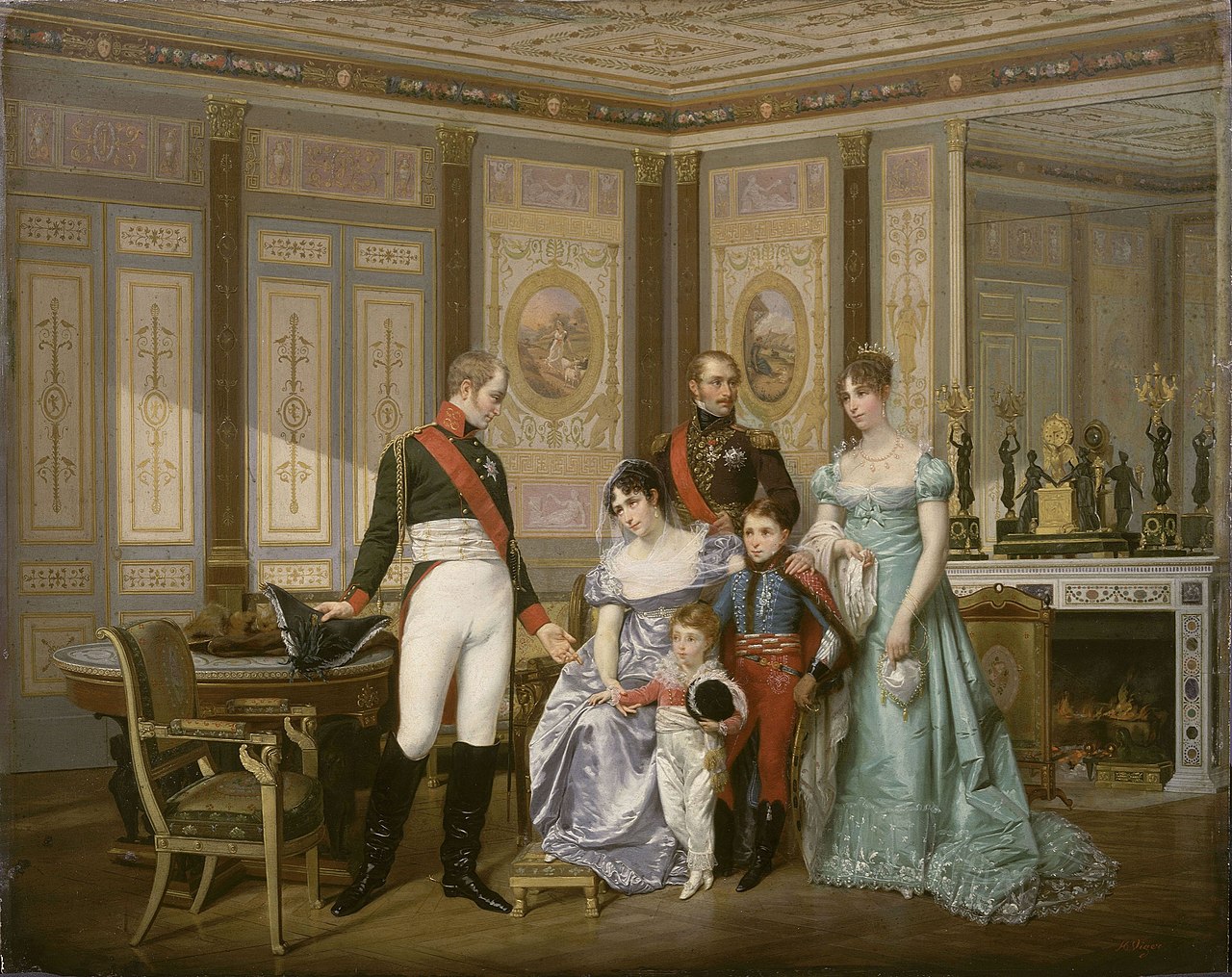 Unknown Author, Wikimedia Commons
Unknown Author, Wikimedia Commons
25. She Lost Her Heir
The unspeakably scandalous rumors only gained traction when Napoléon Louis Charles Bonaparte, at just four years of age, tragically left this world. The Emperor Napoleon all but ignored Hortense's other children, fueling speculation that the presumptive heir had, in fact, been his child. The loss of her son, however, was too devastating for Hortense to pay attention to loose lips. François Gérard, Wikimedia Commons
François Gérard, Wikimedia Commons
26. She Returned Home
After losing her eldest son, Hortense couldn’t bear to stand another day in Holland. She used the tragic event as an excuse to return to France with her other son, Louis-Napoléon, claiming that the weather would be better for his health. The truth, however, was that she just preferred life in Paris. Sadly, she would lose that too.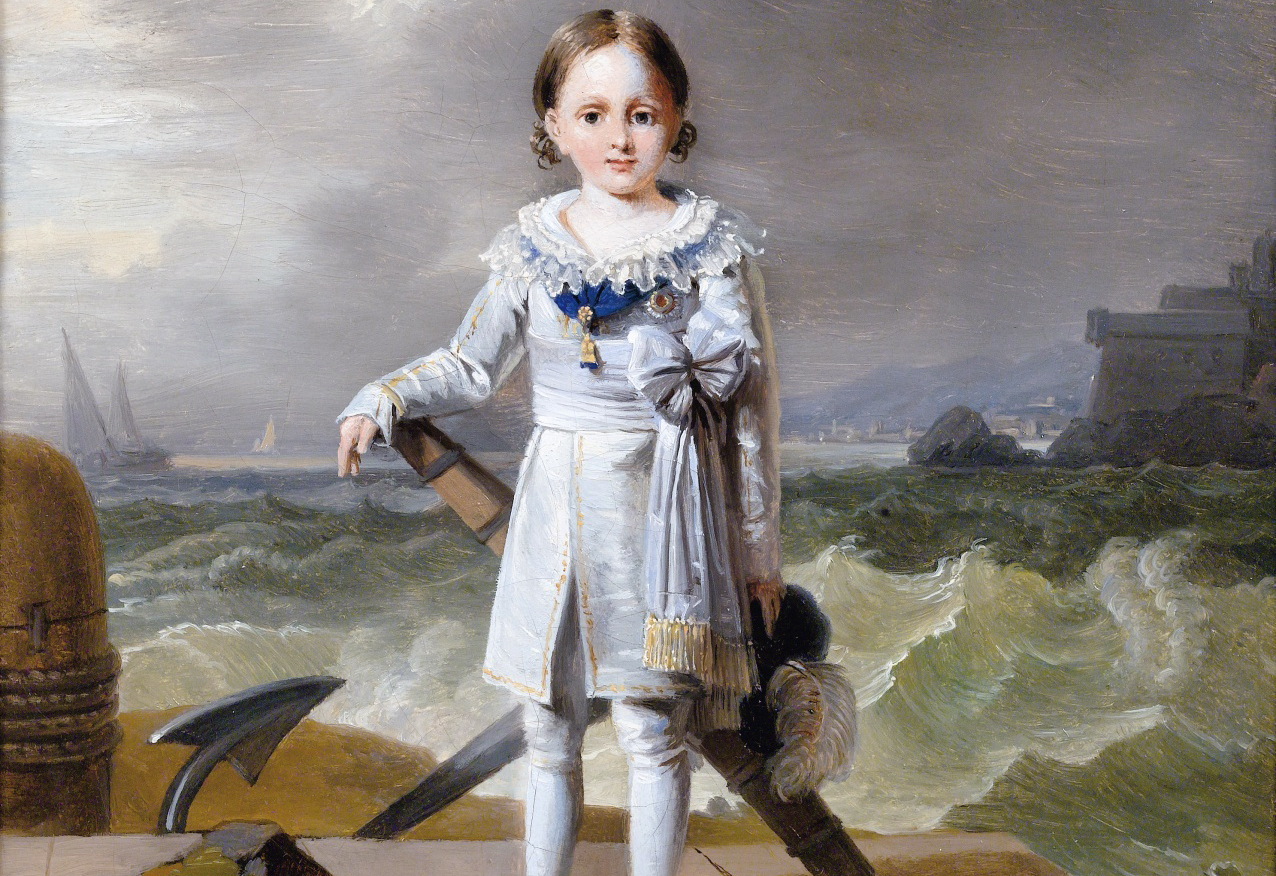 François Kinson, Wikimedia Commons
François Kinson, Wikimedia Commons
27. She Caused Another Divorce
Similar to her actual parents’ marriage, Hortense played a pivotal role in the dissolution of the marriage between her mother and Napoleon. Seeing as though Joséphine could not have children, Hortense's eldest son had been Napoleon’s chosen heir. But when the boy was no longer alive, Napoleon abruptly abandoned Hortense's mother.
 Warner Bros., Napoleon and Josephine: A Love Story (1987)
Warner Bros., Napoleon and Josephine: A Love Story (1987)
28. She Ran Out Of Luck
Unfortunately for Hortense, her good fortunes only lasted as long as her mother’s marriage to Napoleon. Which, evidently, was not very long. So, when the French Emperor remarried to Marie Louise of Austria, Hortense found herself out of imperial favor. Napoleon instructed her to return to Holland and her loveless marriage.
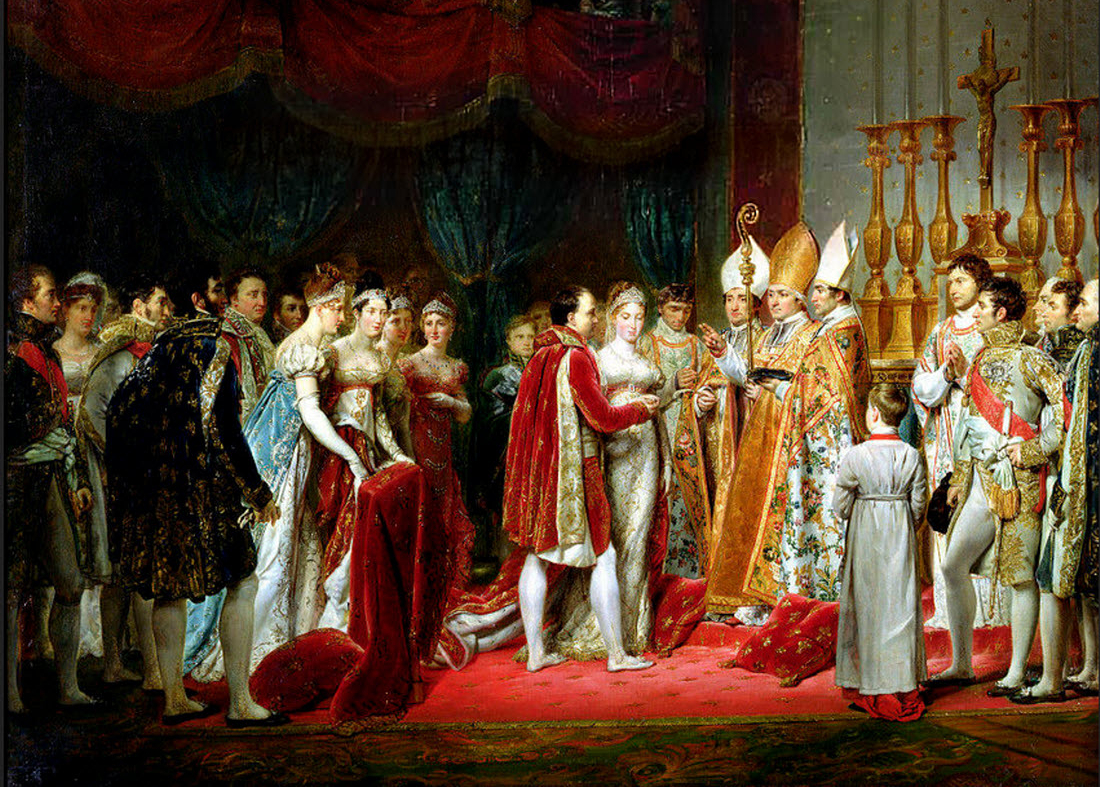 Georges Rouget, Wikimedia Commons
Georges Rouget, Wikimedia Commons
29. She Had To Find Her Own Path
Much to her dismay, Hortense did not receive another warm welcome in Holland as she had before. Public opinion had turned against her as she stubbornly refused to give up her French citizenship, even as the Queen of Holland. Estranged from her husband and loathed by the people, Hortense had to find her own happiness. Anne-Louis Girodet de Roussy-Trioson, Wikimedia Commons
Anne-Louis Girodet de Roussy-Trioson, Wikimedia Commons
30. She Finally Pursued Her Heart
With newfound freedom, Hortense could openly reciprocate the romantic advances of the man she had secretly admired for so long: Colonel Charles Joseph, Comte de Flahaut. This debonair and striking figure, an illegitimate offspring of Talleyrand, quickly ignited a passionate affair with Hortense, and their love blossomed. Maybe a little too literally.
 Jean-Louis-Ernest Meissonier, Wikimedia Commons
Jean-Louis-Ernest Meissonier, Wikimedia Commons
31. She Couldn’t Afford A Scandal
With her precarious position, Hortense couldn’t afford making scandals—and she went to extreme lengths to cover them up. Shortly after starting her affair with Flahaut, Hortense became pregnant with his child. Seeing as though she hadn’t slept with her husband in years, no one would have believed her if she tried to pass it off as his.
Naturally, there was just one solution.
 Chateau de Compiègne, Wikimedia Commons
Chateau de Compiègne, Wikimedia Commons
32. She Kept Her Baby Secret
Under deep shadow, in 1811, Hortense de Beauharnais hatched a plan to give birth to her love child in secret. With the help of her brother, Eugène, and Flahaut’s mother, she absconded to an inn near Lake Geneva in Switzerland where she could carry out her pregnancy and deliver her baby in secret. She just had to keep a low profile.
 Zacharie Grossen, CC BY-SA 3.0 ,Wikimedia Commons
Zacharie Grossen, CC BY-SA 3.0 ,Wikimedia Commons
33. She Hid Away In Switzerland
Flahaut’s mother helped to provide cover for de Beauharnais as she hid her pregnant belly away in Switzerland. The Queen of Holland (in name only really) used the excuse of poor health for her reason to remain at the inn in Lake Geneva. While it wasn’t technically a lie, it also wasn’t true. And she almost blew her cover.
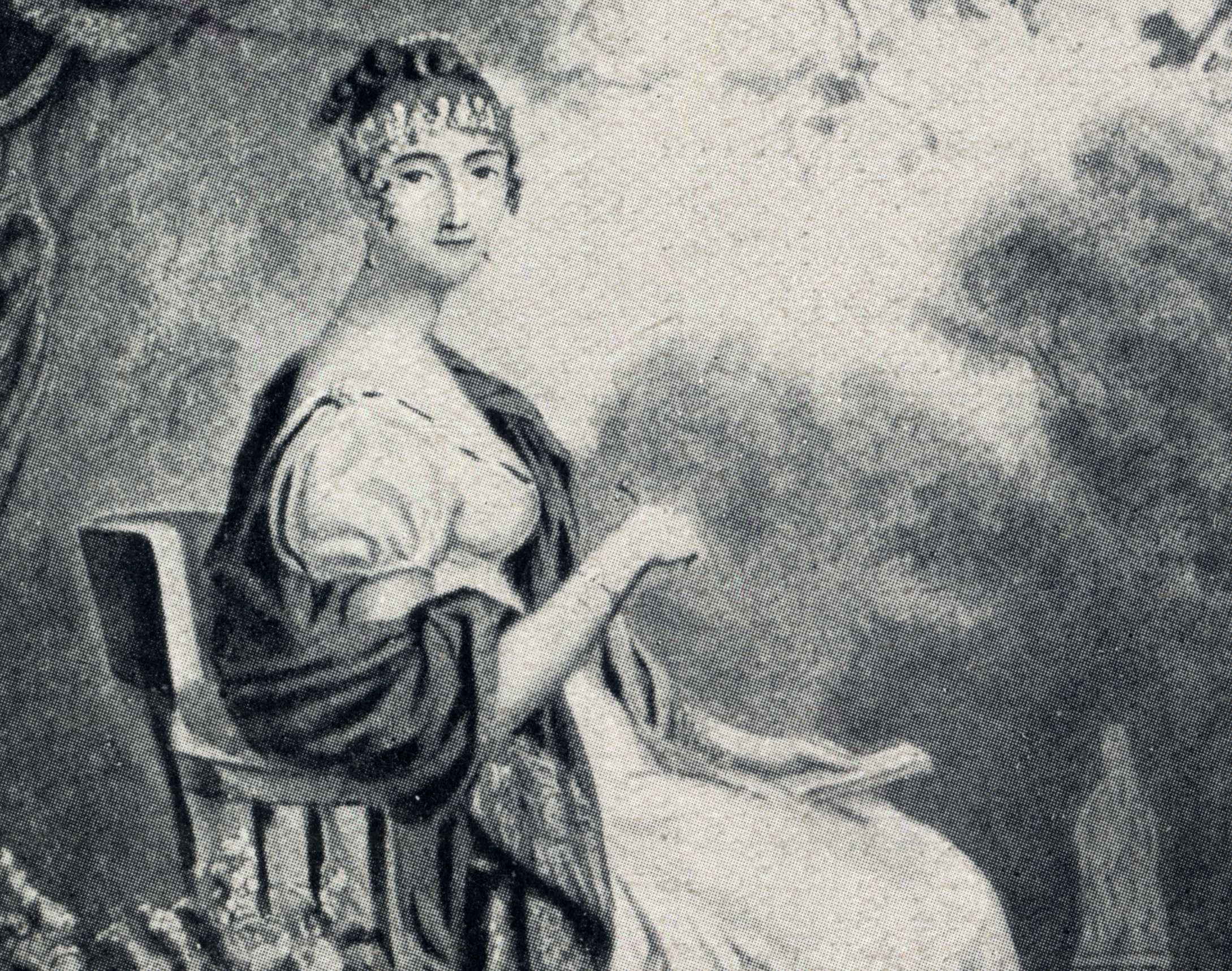 Het Utrechts Archief, Wikimedia Commons
Het Utrechts Archief, Wikimedia Commons
34. She Had To Come Out Of Hiding
When Napoleon had a child with his new wife, he invited Hortense de Beauharnais to the baptism. Hortense, then six months pregnant with her secret love child, knew that she couldn’t refuse the Emperor’s invitation. Not least of all because Napoleon had made her one of the child’s godmothers. But she couldn’t very well show up pregnant.
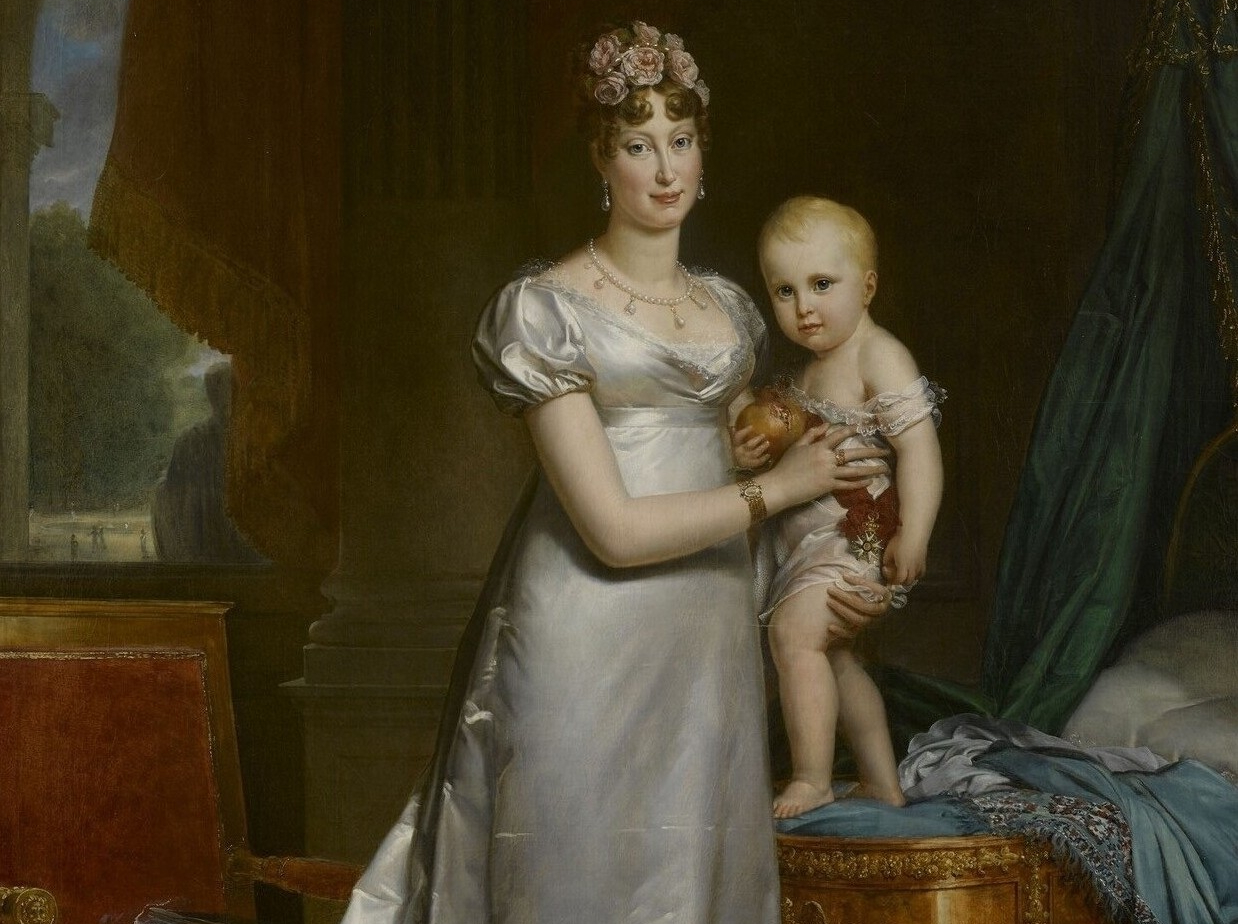 François Gérard, Wikimedia Commons
François Gérard, Wikimedia Commons
35. She Went In Disguise
Caught between a rock and a hard place (or a scandal and an even bigger scandal), Hortense had to think quickly. In a bold move, she decided to attend the baptism—but under a kind of disguise. Making use of some clever clothing options, she managed to hide her baby bump from the prying eyes of European royalty.
But her time away had damaged her love affair.
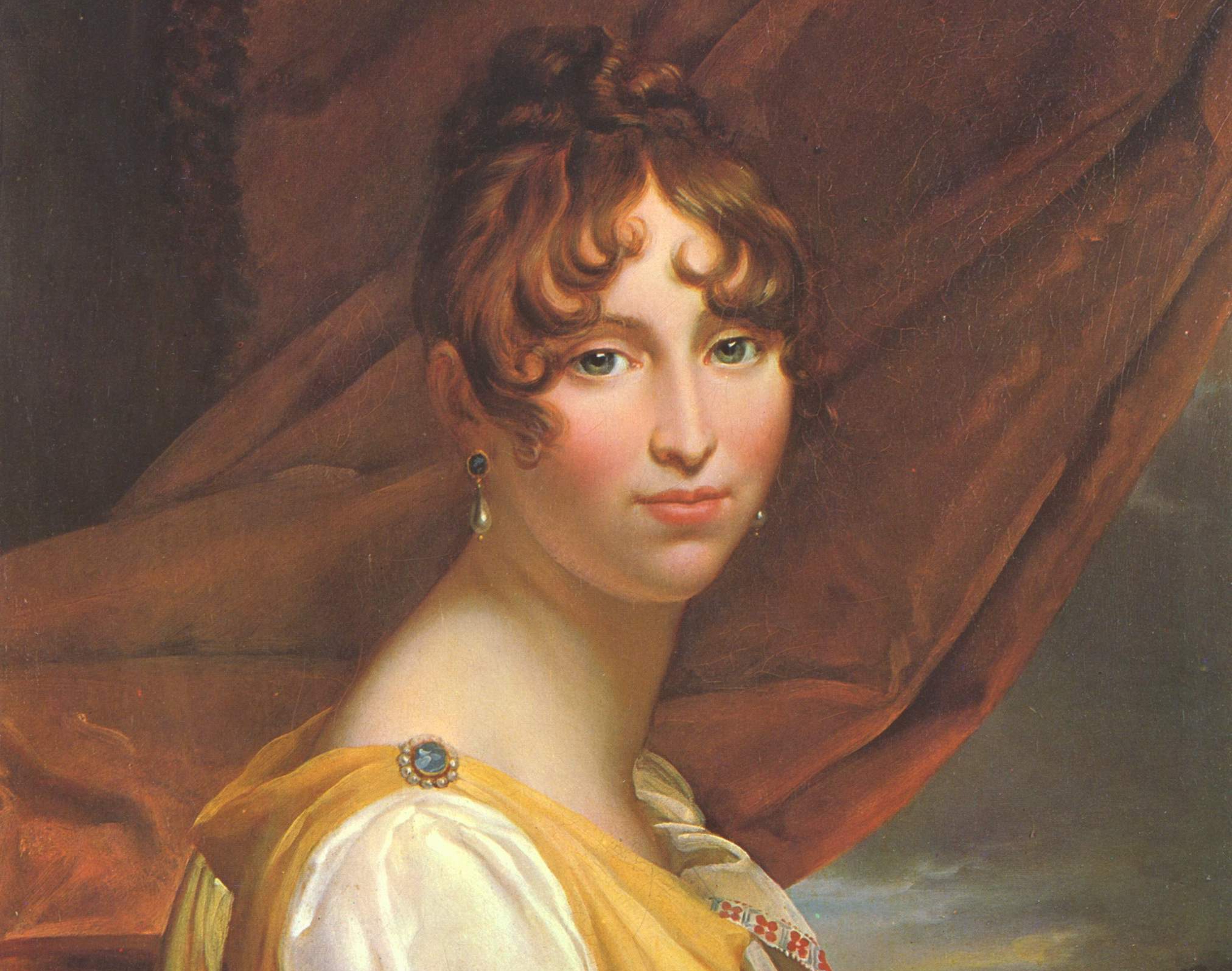 François Gérard, Wikimedia Commons
François Gérard, Wikimedia Commons
36. She Gave Birth In Secret
Thanks to her brother and Flahaut’s mother, Hortense managed to give birth to a healthy baby boy in total secrecy. The boy, Charles Auguste Louis Joseph, later became Duke Morny when his half-brother, Napoléon III, legitimized his birth. For Hortense, however, there would be no happily ever after. At least, not yet.
 Atelier Nadar, Wikimedia Commons
Atelier Nadar, Wikimedia Commons
37. Her Lover Had A Lover
The year 1814 turned out to be a devastating one for Hortense de Beauharnais. As it turns out, her secret lover, Flahaut, had a secret lover of his own. While she had been busy trying to keep her family safe as Napoleon’s power waned, Flahaut had been carrying on an affair with the actress Mademoiselle Mars. The affair would break her heart.
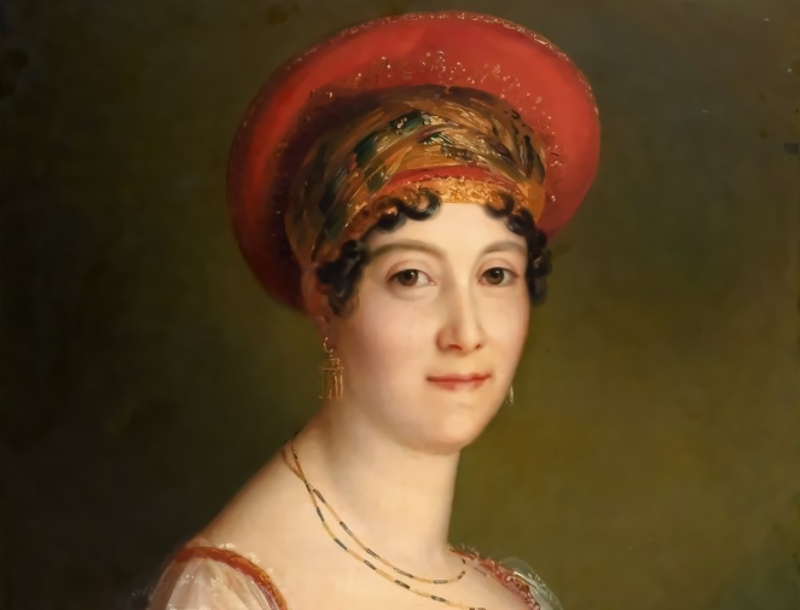 François Gérard, Wikimedia Commons
François Gérard, Wikimedia Commons
38. She Ignored Her Heart
When Hortense came across some letters that Mars had written to Flahaut, she knew she stood no chance. Mars' "passionate outpourings” clearly demonstrated the depth of love between the two and the lonely Queen of Holland knew she had no choice. Against the will of her own heart, she abruptly terminated her affair with Flahaut.
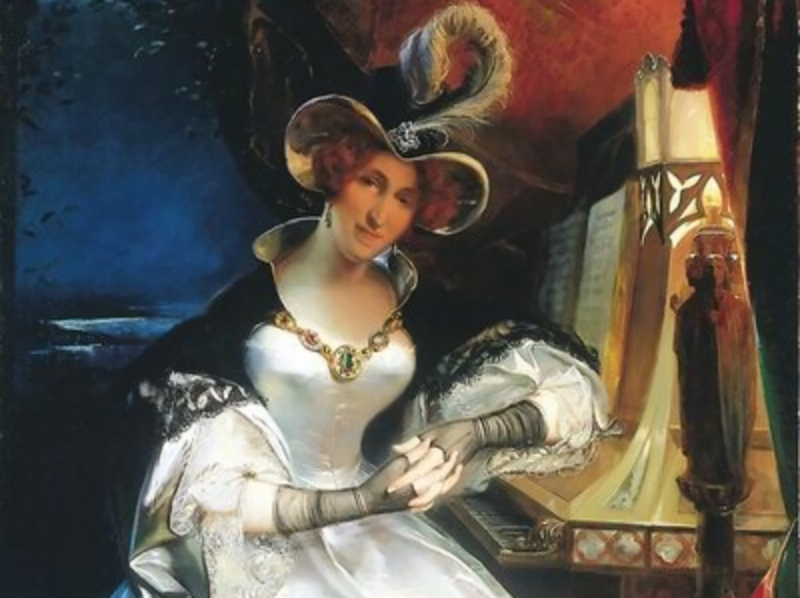 Félix Cottrau, CC0, Wikimedia Commons
Félix Cottrau, CC0, Wikimedia Commons
39. She Was Selfless
Even though she had ended things with Flahaut, the two continued to exchange letters. In the letters, Flahaut professed his undying love for her and promised to marry her. But Hortense was still (despite their estrangement) married to Louis Bonaparte. She knew she couldn’t selfishly cling to the man she loved forever.
 Carl Christian Vogel von Vogelstein, Wikimedia Commons
Carl Christian Vogel von Vogelstein, Wikimedia Commons
40. She Broke Her Own Heart
Hortense had always been selfless—but what she did next was an act of total love. In one of his letters, Flahaut mentioned that he had met “a rich young woman who seemed to like him”. Knowing that she could never give Flahaut what he truly wanted, she made him swear to break his promise of marriage to her so that he would be free to marry another woman.
The pain was more than she could bear.
 François Gérard, Wikimedia Commons
François Gérard, Wikimedia Commons
41. She Found Happiness At Last
With a broken heart, Hortense fled to Einsiedeln Abbey and threw herself on the mercy of the abbess. She placed a bouquet of diamond hydrangeas at the foot of the Virgin Mary and poured out all of her hurt. The brief retreat mended her broken heart as she wrote that she had found “so many consolations, such happiness at Einsiedeln”.
She would need all the divine protection she could get.
 Roland zh, CC BY-SA 3.0, Wikimedia Commons
Roland zh, CC BY-SA 3.0, Wikimedia Commons
42. She Backed The Losing Side
Not only did Hortense lose her lover, she also lost her crown shortly after that. She supported her stepfather, who was also her brother-in-law and possibly her former lover, Napoleon, during the Hundred Days. When Napoleon lost, the new Bourbon King banished her from France once again. But there was a song in her heart.
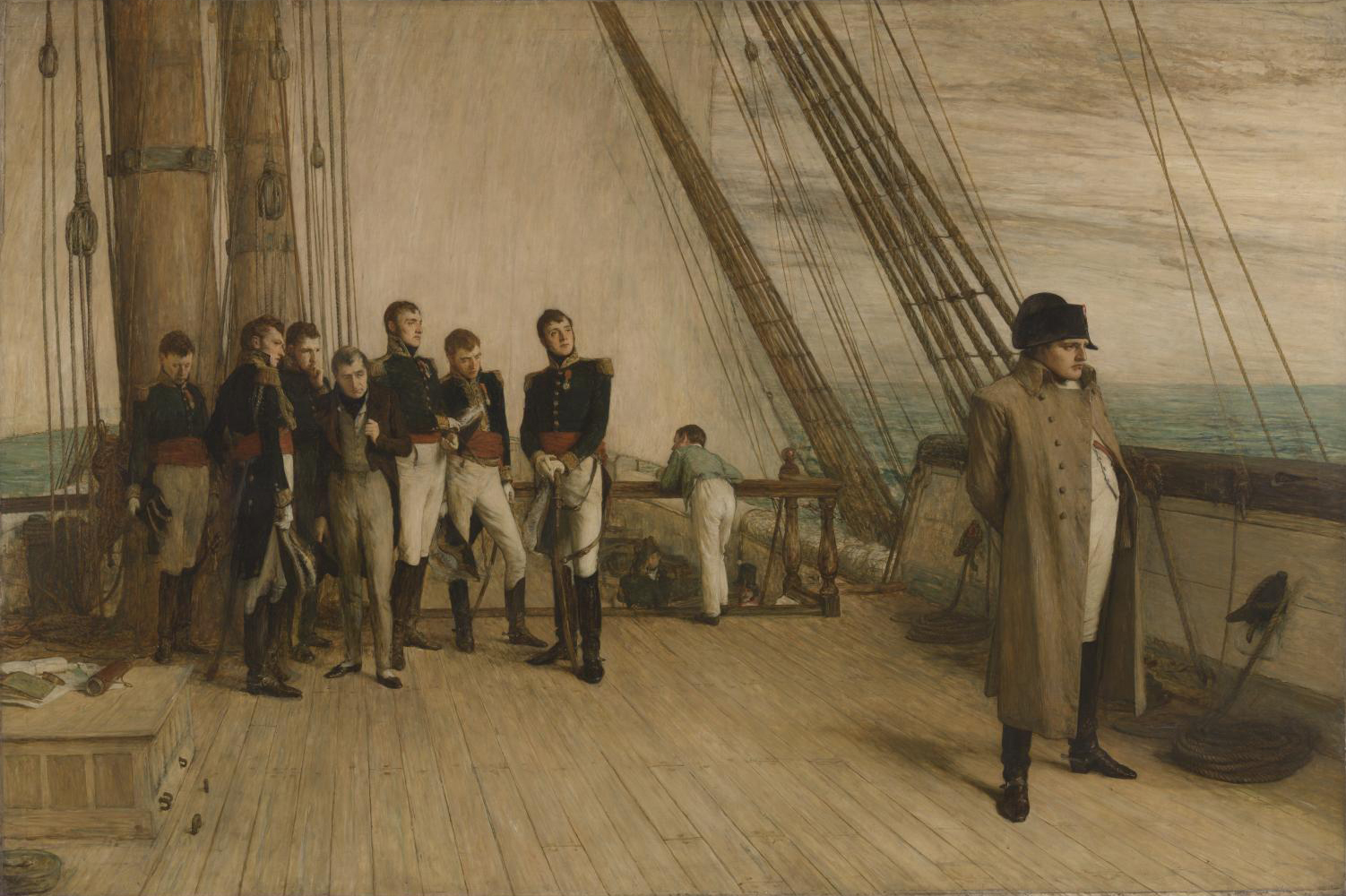 William Quiller Orchardson, Wikimedia Commons
William Quiller Orchardson, Wikimedia Commons
43. She Was A Musical Prodigy
Throughout her life, Hortense de Beauharnais had always displayed a keen talent for composing music. If she hadn’t been so busy trying to find love and stay out of politics, she might even have become a famous composer. Nevertheless, in her exile she found comfort in composing, writing, drawing, and painting. The arts, as it turns out, was her one true love.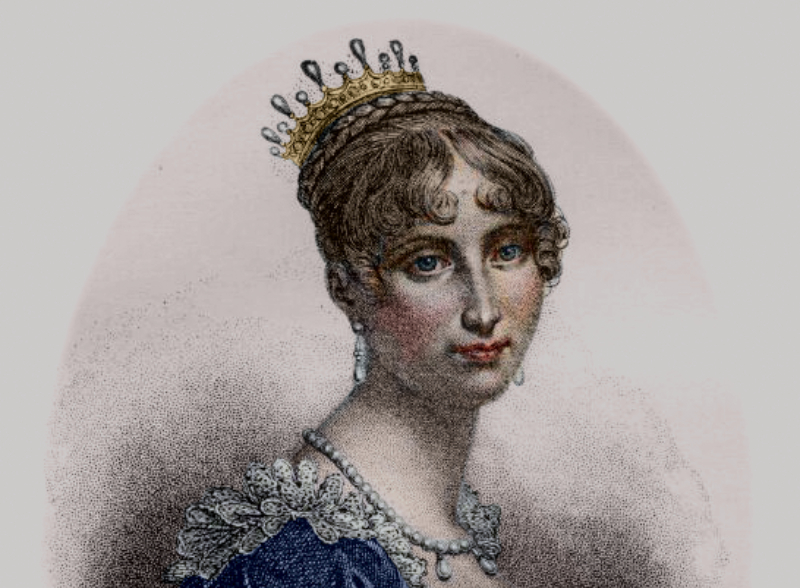 Louis Antoine Fauvelet de Bourrienne, Wikimedia Commons
Louis Antoine Fauvelet de Bourrienne, Wikimedia Commons
44. She Impressed The Impresarios
During her banishment, Hortense composed prolifically. Even though she had never received any formal training, she clearly displayed a rare talent. In her exile, she hosted the likes of artistic titans such as Franz Liszt, Alexandre Dumas, and Lord Byron who all expressed their amazement at her musical gifts. Soon, she’d be singing for her supper.
 Franz Hanfstaengl, Wikimedia Commons
Franz Hanfstaengl, Wikimedia Commons
45. She Defied Her Banishment
Another revolt, this time in Italy, sent Hortense fleeing back to Paris, despite her banishment. Under a cloud of secrecy, she contacted the new King of the French, Louis-Philippe, in the hope that he would understand her plight and help her secure safe passage to England. But she had clearly lost her knack for staying hidden.
 Franz Xaver Winterhalter, Wikimedia Commons
Franz Xaver Winterhalter, Wikimedia Commons
46. She Could Have Been Empress
Massive factions within France still identified as Bonapartists, even though the deposed emperor was lying six feet under the ground. Hortense knew that her presence in France might stir up the Bonapartist movement and endanger her chances of seeking favor from King Louis-Philippe. To avoid a scandal (or a fate similar to her father’s) she knew she just had to stay hidden.
With supporters as zealous as hers, however, that was easier said than done.
47. Her Son Conspired Against Her
King Louis-Philippe agreed to meet Hortense and even gave her a warm welcome at the Tuileries Palace. To her relief, it seemed like he was willing to let bygones be bygones. But, while she negotiated safe passage with Louis-Philippe, her son, Louis-Napoleon, was making negotiations of his own. Negotiations that would restore Hortense de Beauharnais to her former glory...or see her hauled off to the guillotine.
 Gustave Le Gray, Wikimedia Commons
Gustave Le Gray, Wikimedia Commons
48. She Could Turn Out A Crowd
News that Hortense had returned to France quickly spread across the land and ignited a flame within the Bonapartist movement. Before long, a massive crowd of her supporters gathered outside of her hotel at Place Vendôme and began chanting, “Vive l'Empereur!” Once again, Hortense found herself at the dangerous center of a web of political intrigue.
 Unknown Author, Wikimedia Commons
Unknown Author, Wikimedia Commons
49. She Went Into Exile One Last Time
Allegedly, while Hortense sat with Louis-Philippe, her son Louis-Napoleon was meeting with Bonaparte conspiracists to overthrow the crown. Alas, Louis-Philippe and his supporters discovered the dreadful plot and blamed both Hortense and her son for the whole thing. Thankfully, they allowed her to keep her head but ordered them to leave France and, this time, to never return.
Sadly, she never would.
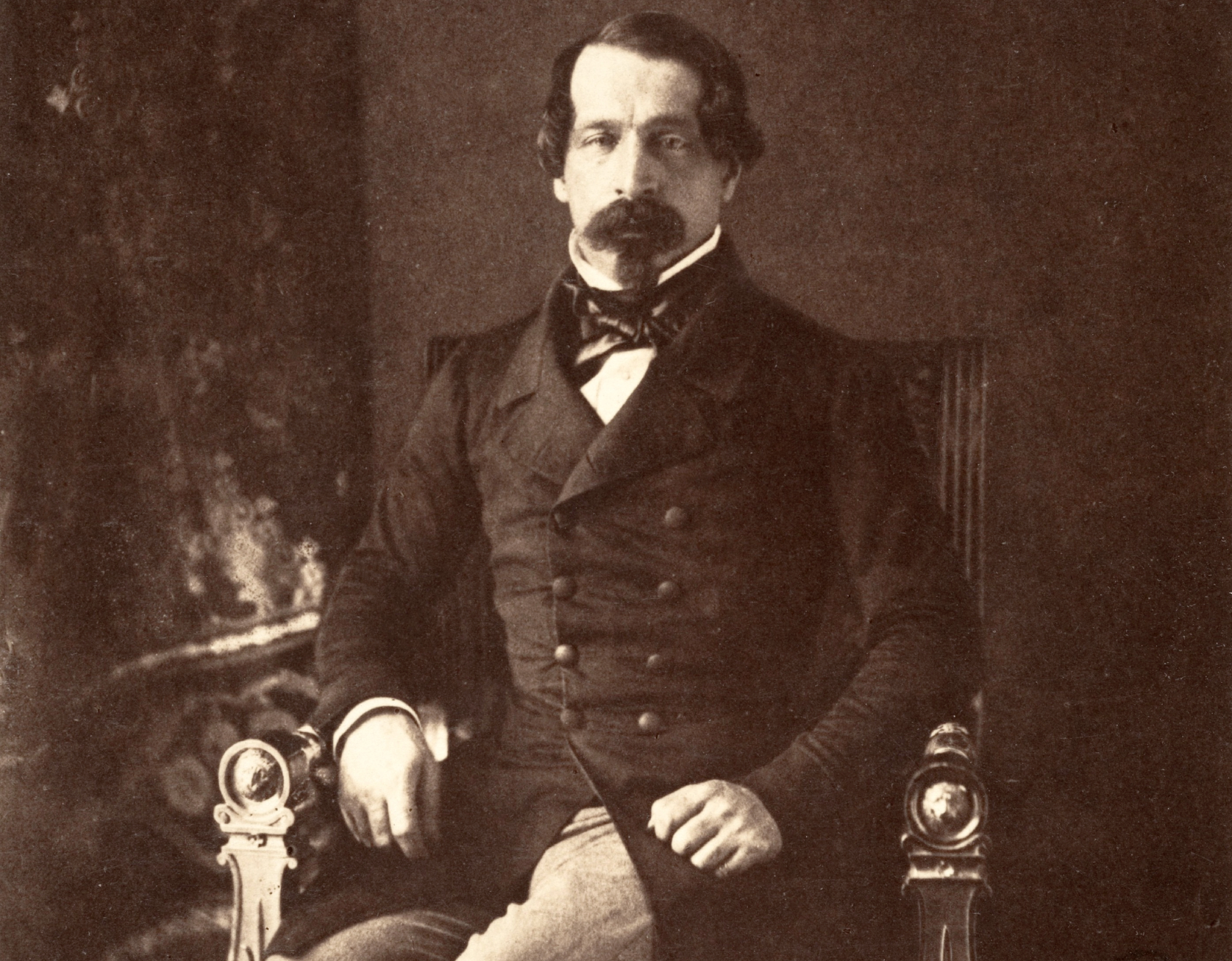 Gustave Le Gray, CC0, Wikimedia Commons
Gustave Le Gray, CC0, Wikimedia Commons
50. She Was A National Treasure
Banished for good from her beloved Paris, Hortense de Beauharnais finally settled in Switzerland. She turned her home, the Château Arenenberg, into “a center for French art and culture”. Sadly, she never returned to France again and never found her true love.
However, in a fitting tribute, when her son Napoleon III ascended to the throne, he made her composition “Partant pour la Syrie” the national hymn of France.

